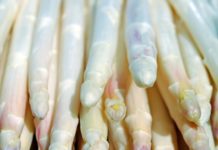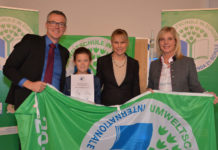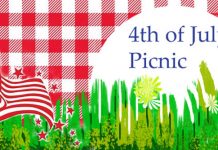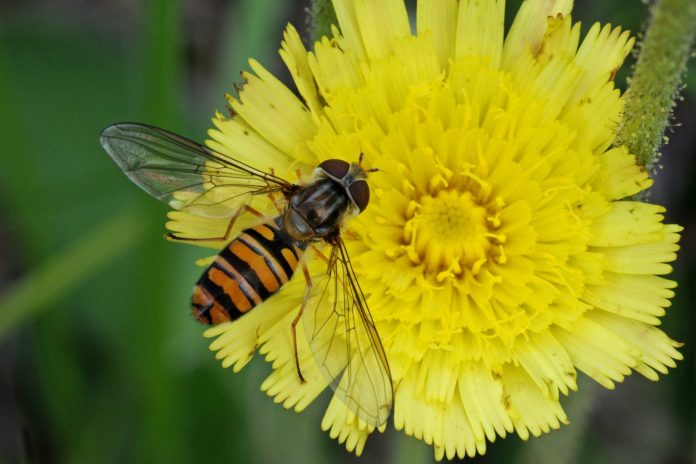MUNICH — MunichNOW News — For one more week, activists like Georg Danes will be out on the streets all over Bavaria encouraging their fellow Bavarians to demand a referendum to protect bees and the biodiversity that they depend on. With the goal of collecting at least one million signatures, members of 200 various environmental groups hope to take one major step toward what they call the Agrarwende, a reform of agricultural policy in Bavaria and beyond.

It all started on the 31st of January and will run until the 13th of February. According to their website, http://www.volksbegehren-artenvielfalt.de www.volksbegehren-artenvielfalt.de, 500,000 people have already signed the petition, with town halls keeping their doors open extra late to accommodate the large numbers of people stopping in to show their support. The petition can only be signed by German citizens in Bavaria.
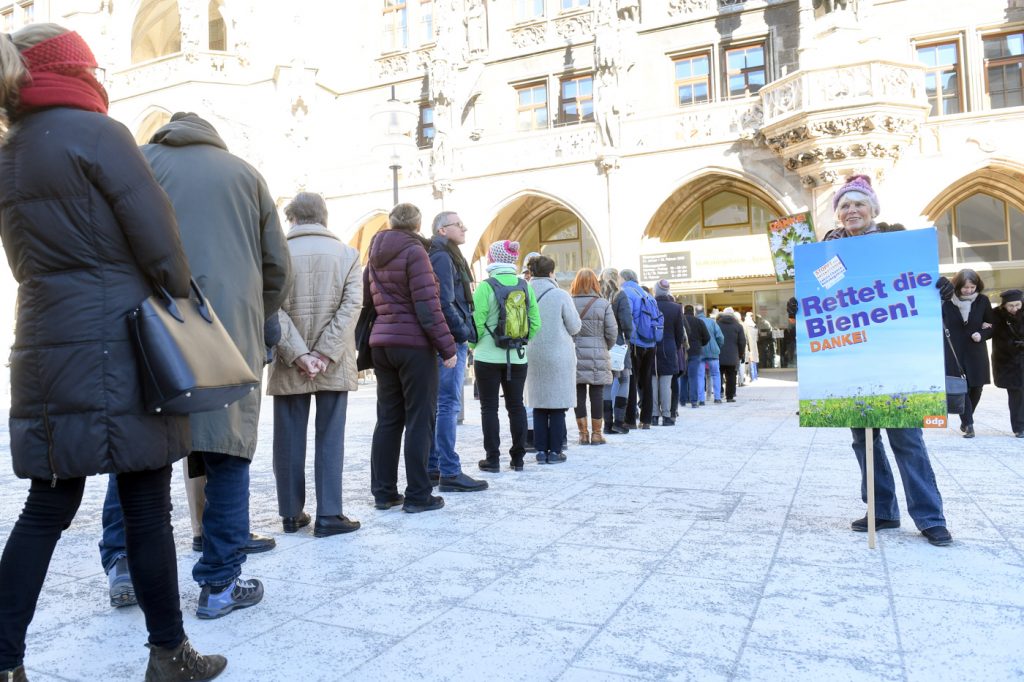
The inspiration for the initiative is this: Given the fact that bees play such a crucial role play in pollinating plants and hence in the production of the numerous fruits and vegetables that we humans consume, environmentalists figure that the protection of bee life is tantamount to the protection of human life.
As Mr. Danes puts it, “If the bees die, then the humans die.” That’s because without the habitat that makes it possible for bees and other insects to thrive, agriculture itself suffers. Diminished crop yields means diminished profits for farmers and diminished produce for consumers. And so it is exactly this habitat that environmentalists are trying to protect.
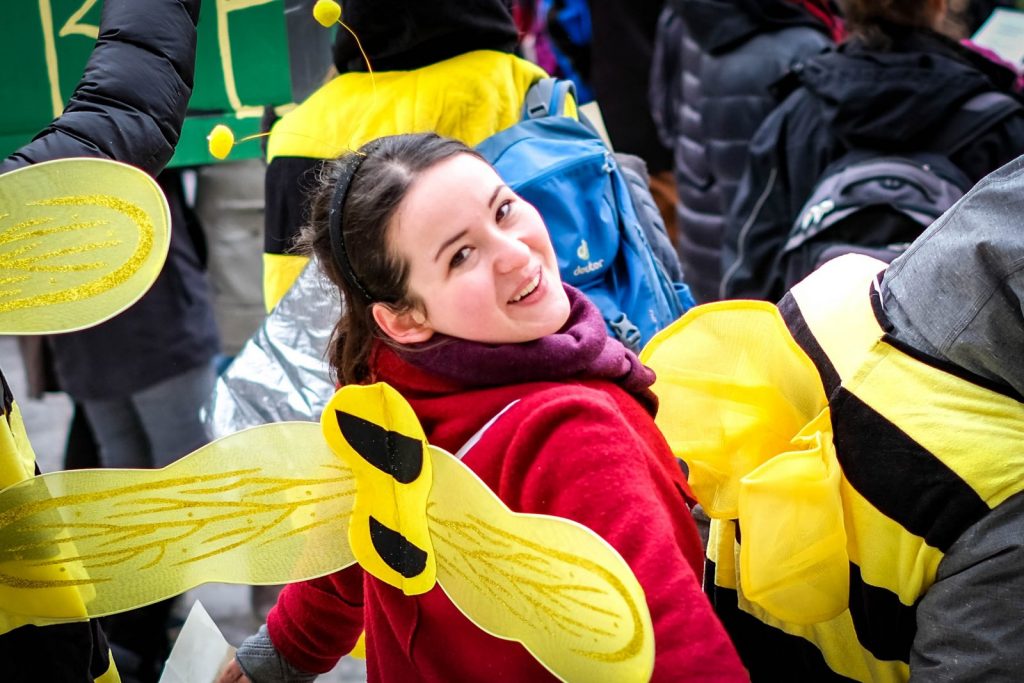
Anastasia Kühn sings in the largest bee song choir in Bavaria on the Marienplatz on the second day of registration for the rescue of biodiversity.
Photo: Tobias Hase
Their ideas are sensible. For example, they’re proposing, among other ideas, what they call Gewässerrandstreifen, unmowed buffer zones of trees, plants and grasses around creeks, rivers, and lakes that shall remain pesticide free and unfertilized. The benefits of which are manifold: they prevent manure and fertilizer from directly entering the waterways, thus preserving water quality, they filter the agricultural runoff that enters them, and they serve as valuable habitat for bees and insects.
A related goal is to expand the amount of unmowed grassland in Bavaria to cover at least 10% of Bavaria‘s surface area. This habitat space serves as breeding grounds for bees and other insects, which in turn serve as food for birds. Increasing this area will allow bees and insects to regenerate their numbers.
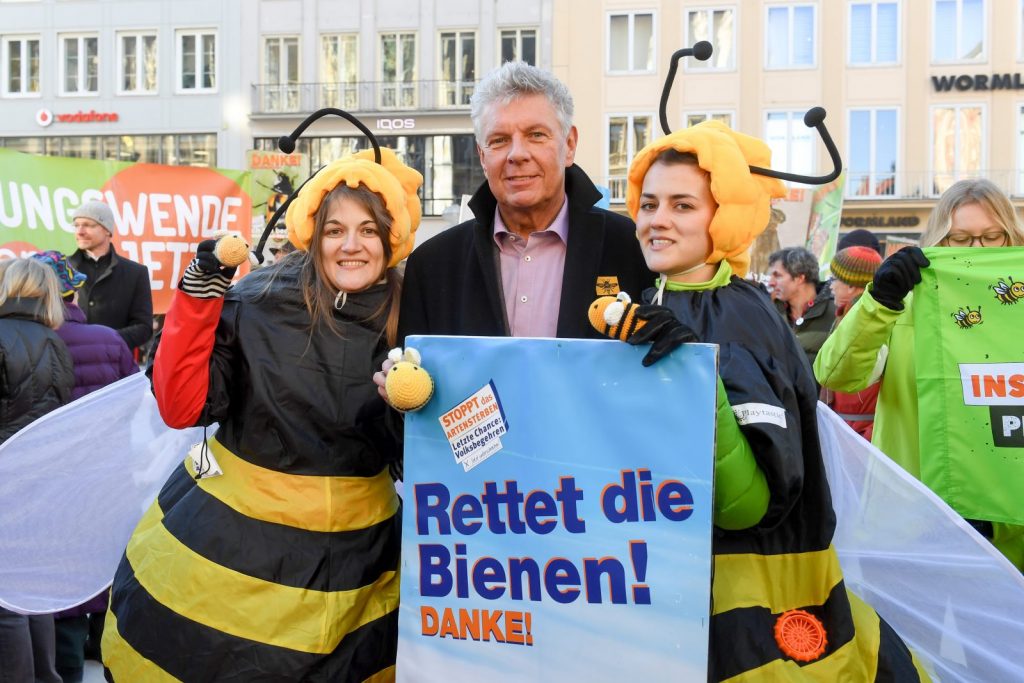
Kick-off event for the Volksbegehren Species Diversity in Munich on 31/01/2019 - Munich’s mayor promotes the Volksbegehren biodiversity - Save the bees!
Photo: Tobias Hase
Not surprisingly, however, these proposals and others like them have encountered opposition from the farming community. Fearful of reduced productivity and even dispossession of their lands, farmers in the Bayerischer Bauern Verband (Bavarian Farmers‘ Association) have spoken out against this initiative. They resent the meddling of non-farmers in their business, making the claim that they are exaggerating the dangers and speaking outside of their area of expertise.
Environmentalist counter that, in the long-run, a shortage of bees and insects will lead to poor soil quality and lower levels of pollination. Furthermore, they argue that the demand for organically and sustainably produced fruits, vegetables, and meats is on the rise, which should encourage farmers to adapt to the needs of the market.
Either way, this debate is sure to continue and people like Mr. Danes are sure to maintain an active voice in it. “Whether city dweller or farmer,“ as Mr. Danes reminds us, “we are all interested in a sustainable future.“
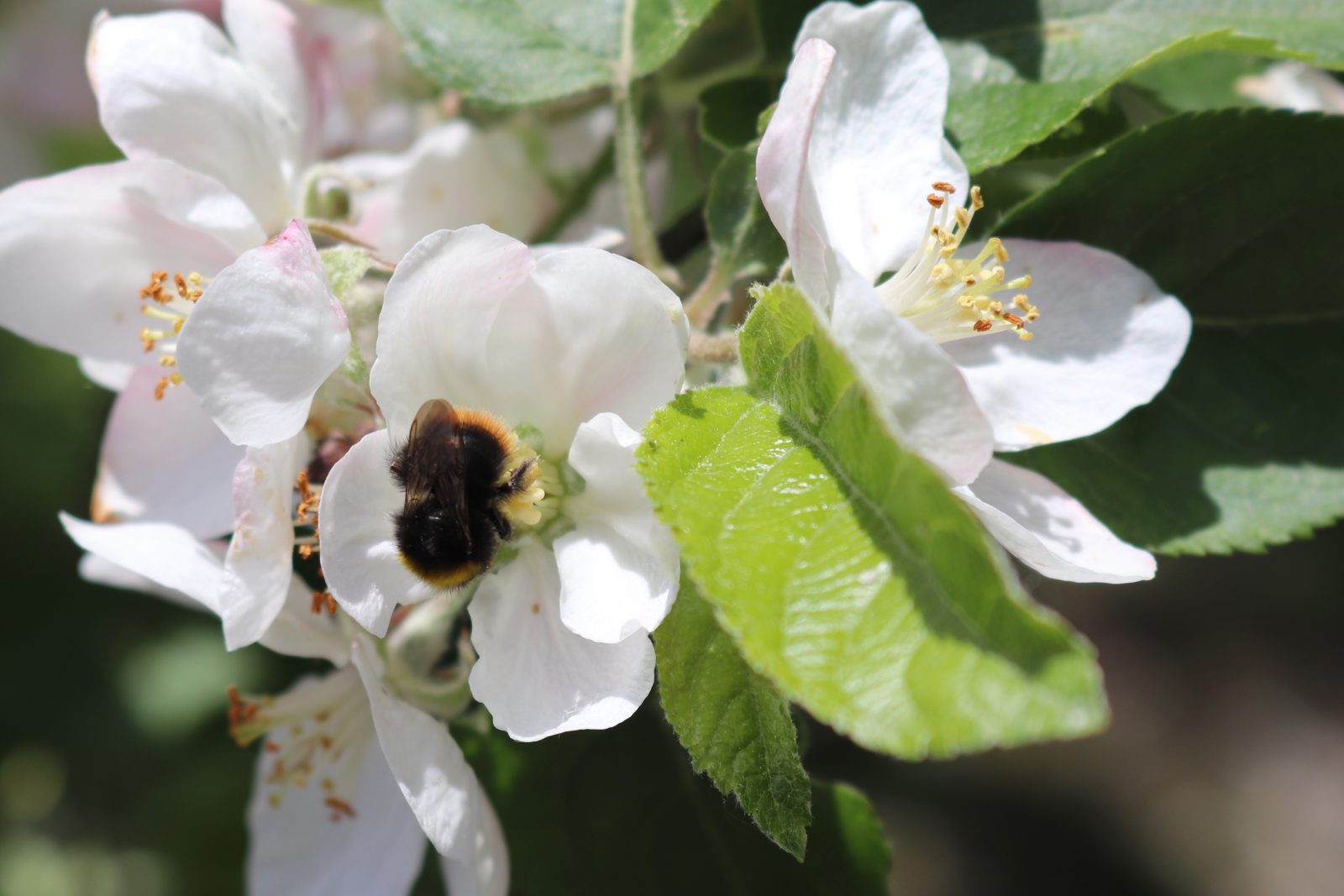
Meadow bumblebee in a flowering field. Bumblebees belong to the wild bees and they play a very important role in pollination.
Photo: © Katharina Heuberger
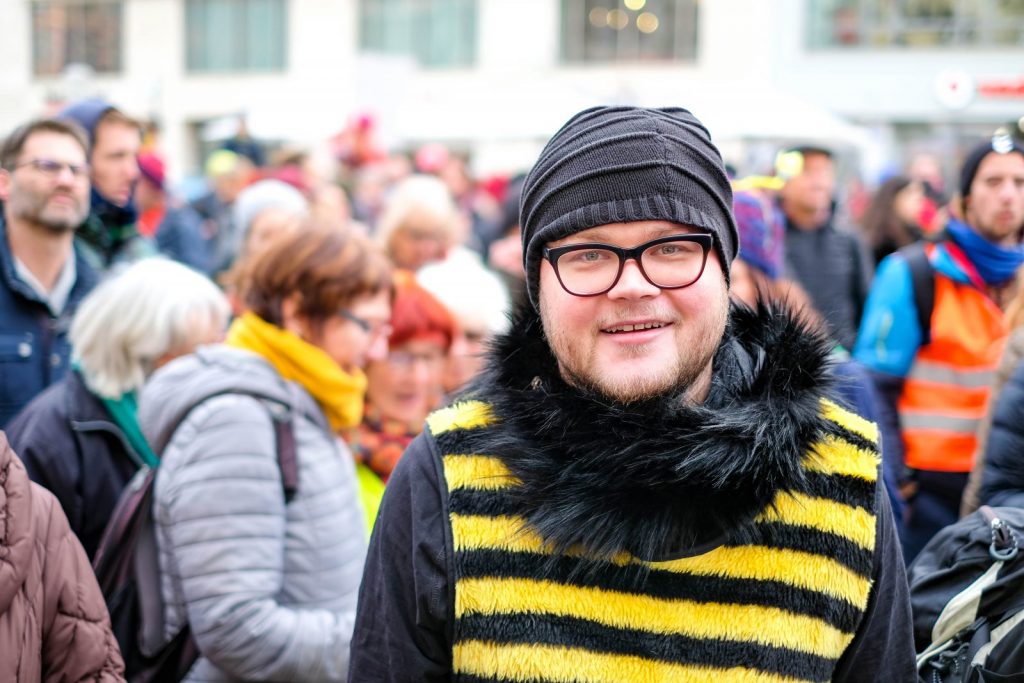
What can I do?
You need to be a Bavarian city to sign the petition, but anyone can come out and support the marches and demonstrations. For more go to the website!











